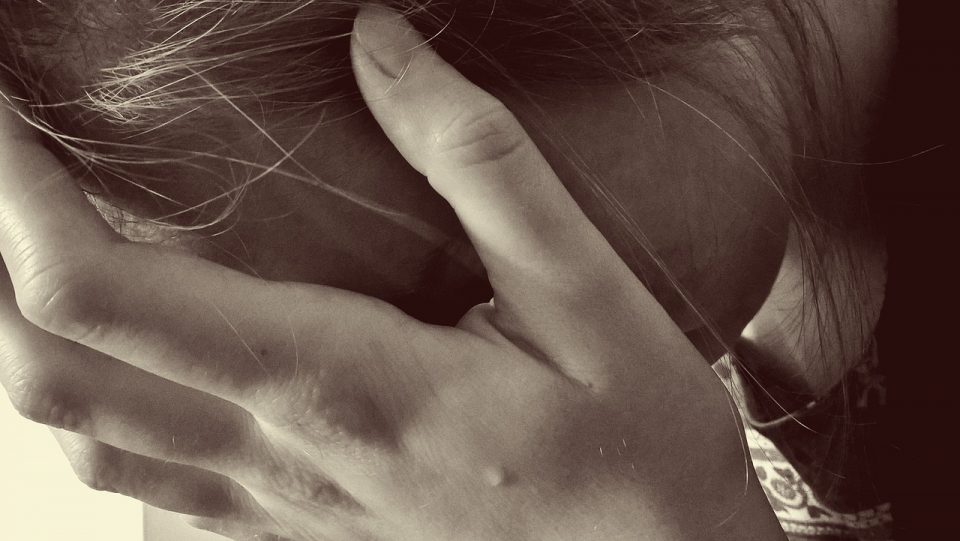Divorce Guilt is a real thing – stop being so hard on yourself

Divorce Guilt is a real thing.
Standing in an iconic red telephone box on a grey London street I nervously dialled the number of my childhood home in Australia. My throat was dry, my heart pounding, but it was time to face the music. As my mum answered I drew a deep breath and asked that she fetch my dad to join the conversation.
I then delivered the news that I had concealed from my family and friends back home – two weeks earlier, on the other side of the world, my marriage had come to an end. I felt many emotions in that little red phone box, including grief and sadness, but also overwhelming shame and guilt.
I felt a responsibility that my decisions around my marriage would cause my family unnecessary anguish, a burden that was already weighing very heavily in relation to the profound upheaval and pain my husband was experiencing.
My shame was so intense that I couldn’t stop apologising. I uttered “I’m so sorry” many times and to many people, but this did not cure the unstoppable shame and guilt. I felt like I was a bad person.
Many years later, and having moved forward with my life, I can see that I was in fact experiencing “Divorce Guilt”, a phenomenon that I now observe in my day-to-day work as a family lawyer.
Divorce Guilt can manifest itself in many ways, including:
· Feeling bad for making the decision to end an unhappy marriage;
· Believing you are at fault for your spouse not wanting to stay married to you;
· Thinking you have failed your children because you have “broken” their family;
· Believing you are not a person of your word, because you will not be continuing with a vow made “ ’til death do us part”;
· Feeling like a failure;
· Thinking you are worthless.
Within the legal context, I see Divorce Guilt manifest itself when separating couples address their legal issues. This can include:
· A person not asserting their rights for property settlement, and even forgoing significant financial entitlements in an attempt to ease Divorce Guilt;
· Not taking a firm stand against the other parent when they make poor parenting decisions;
· Feeling so burdened by shame that it impairs their ability to make decisions, and take proactive steps to resolve the legal aspects of divorce, causing the matter to become drawn out;
· Always prioritising the feelings of the other person over self-interest or, sometimes, even over the interests of the children.
Because of this, Divorce Guilt can significantly undermine whether a legal process or outcome is fair to both parties and whether the result is right for the children. It is therefore critical that anyone suffering from Divorce Guilt take active steps to deal with those emotions so the whole family unit can heal and move forward.
Tips for overcoming Divorce Guilt include:
· Give yourself permission to be at peace with the end of your relationship. This could include mantras such as, “I am at peace with the decisions I have made” and “I give myself permission to heal from this situation”.
· Check-in as to whether you objectively have something to be sorry for, or are you taking responsibility for situations that aren’t yours to shoulder? It might help to talk this through with a counsellor or support person. If you do feel that you are genuinely remorseful for your decisions or actions, then forgive yourself and move forward;
· Be kind to yourself. Don’t let the negative self-talk take hold, and replace it with a compassionate approach. It also helps to spend time with the people that make you feel good about yourself and avoid people that bring you down;
· If you feel that you have failed your children because of your divorce, be careful of guilt-driven parenting which can impact leniency, competitiveness and rapport with the other parent, to name just a few. Often the best thing that we as parents can do for our children is to nurture our own emotional health, and therefore shedding your guilt is in your child’s interests.
· Recognise that guilt is a useless emotion. It doesn’t serve anyone or any helpful purpose, so be aware that it doesn’t belong in your life. You could have a private ceremony where you actively release the guilt in a way that is meaningful to you;
· Seek the support of a counsellor, psychologist or psychiatrist where necessary as this is likely to improve the fight against Divorce Guilt and help you process your emotions quicker.
Thankfully I no longer shoulder the shame and guilt which I did 15 years ago, and I am at peace with the decisions I made at the time. I strongly urge people facing divorce to assess their levels of shame and guilt, and take positive steps to become free of this burden. Doing so will allow you to move forward in your life and be a happier, healthier person and parent.
If you are considering separation and need some advice contact your nearest TGB office here or register your details here and we’ll be in touch soon.